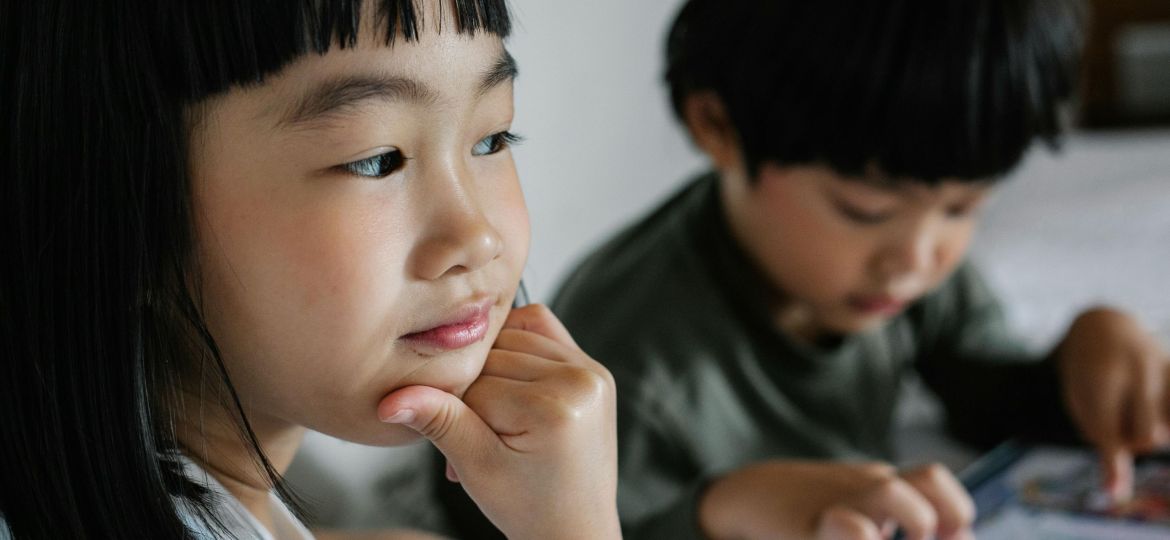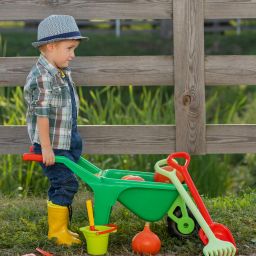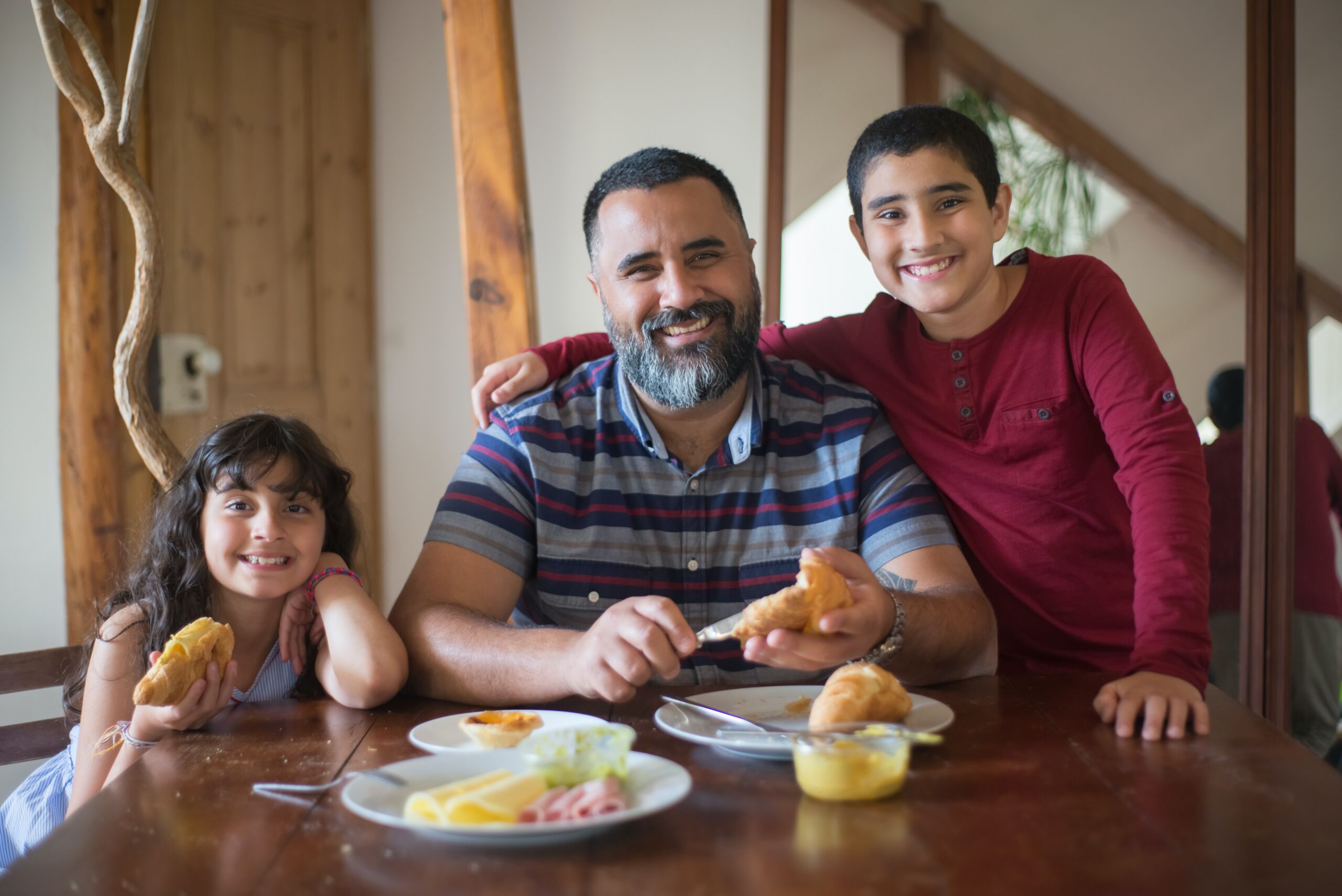
FH Summary: The blog post highlights the critical role of teaching children to choose their thoughts positively, inspired by David Foster Wallace’s college graduation address “This Is Water,” and how such a mindset can significantly impact their development and resilience. It outlines practical strategies for parents and educators, such as modeling positive behavior and incorporating mindfulness, to foster a positive mental environment that encourages children to view challenges as opportunities. First Habits provides extensive resources to support this educational approach, aiming to cultivate a generation of children equipped to handle life’s challenges with optimism and strength.
At First Habits, we understand the profound influence that thought patterns can have on a child’s development. Drawing inspiration from David Foster Wallace’s insightful speech “This Is Water,” this blog explores the critical importance of fostering positive thinking in children. By teaching them that they can choose their thoughts, we empower our young ones to engage positively with their surroundings and develop resilience against negativity.
Understanding Thought Choice in Children
David Foster Wallace’s speech “This Is Water” (full text here) provides a compelling narrative about the automatic, often unconscious, thought processes that dictate how we interpret and react to the world around us. This automatic thought process more often than not has a negative basis – why is this person driving so slow? Why can’t I find the right grocery item? Why am I always so busy? As an antidote, Wallace suggests that being aware of and regulating these thoughts can significantly alter our life experience. For children, learning to navigate their thought landscape is crucial. It sets the stage for how they handle emotions, react to stress, and interact with others.
Teaching children that they can choose their thoughts and reactions empowers them to take control of their internal narratives. This ability is especially important in their formative years when they are still shaping their understanding of the world. See our prior post about theory of mind here.
Cultivating Mindfulness and Choice
To further expand on the speech, Wallace dives into an exploration of the default settings of human thinking, emphasizing the importance of awareness in our daily choices and interactions. Wallace articulates how adults often operate on an automatic mode of self-centeredness, focusing on their immediate needs and desires without being conscious of their broader impact. He challenges his audience to recognize this default setting and to exercise conscious control over how they perceive and respond to others and the world around them. The crux of his message lies in the power of choice in determining our own realities and liberating us from the confines of self-centered, automatic thoughts that can lead to a narrow, unfulfilled existence.
When applied to children, Wallace’s ideas underscore the importance of teaching young minds to become aware of their thought processes and to choose their attitudes towards daily experiences actively. Educating children on the ability to consciously select positivity and empathy in their view of the world can help cultivate a mindset that appreciates and seeks understanding, rather than defaulting to judgment or negativity. This approach not only enriches their interactions but also enhances their emotional and social intelligence, paving the way for them to lead more engaged, thoughtful lives. By fostering such mindfulness from an early age, children can develop resilience against adversities and grow into well-rounded individuals who understand the value of considering various perspectives and choosing their responses to the world around them.
The key concept here is the ability to think critically and make conscious choices regarding how to perceive and interpret various situations and experiences. This freedom will allow your children to determine for themselves what is positive and what is holding them back. By cultivating this habit at a young age, children will be equipped to navigate the complexities of life with awareness and intention, making informed decisions about what to value and how to respond to the world around them rather than operating on the negatively biased and self-centered default setting. He posits that life is about “learning how to be well-adjusted. You get to consciously decide what has meaning and what doesn’t.”
The Psychological Impact of Thought Patterns on Children
The impact of thought patterns on psychological development is well-documented. According to a study by the University of Pennsylvania’s Positive Psychology Center, children who learn to reframe negative situations into opportunities for growth exhibit higher resilience and satisfaction in life.1 This research supports First Habits’ philosophy that positive thinking from an early age can build a foundation for robust personal and academic growth, initiating a positive upward spiral in a child’s life.
Conversely, negative thought patterns can lead to what we refer to as a “negative spiral.” This can manifest in increased anxiety, depression, and a defeatist attitude towards challenges. Educators and psychologists stress the importance of proactive measures to cultivate a mindset that embraces positivity and resilience.
Strategies to Encourage Positive Thinking in Children
To effectively instill a habit of positive thinking in children, parents and educators can adopt several practical strategies:
§ Model Positive Behavior: Children learn significantly from observing the adults around them. By managing stress and setbacks with a positive outlook, parents and educators demonstrate the power of positive thinking firsthand.
§ Teach Mindfulness and Gratitude: Integrating mindfulness exercises and gratitude practices into daily routines helps children focus on the positive aspects of their day, encouraging a habit of positive thinking.
§ Foster an Encouraging Environment: Consistently reinforcing that challenges are opportunities to learn and grow helps children naturally adopt this positive mindset, which is vital for their overall development.
§ Engage in Positive Communication: Encourage children to express their thoughts and feelings openly. This not only helps them become aware of their own thought processes but also provides opportunities for guidance on positive thinking.
§ Read Inspirational Stories Together: Sharing stories that highlight resilience and positive outcomes can inspire children to adopt similar attitudes in their own lives.
Real-Life Application: Alex’s Story
The transformative power of positive thinking is vividly illustrated in the story of Alex, a seven-year-old who initially struggled with pessimism, especially regarding his schoolwork. Guided by First Habits’ principles, his parents began incorporating nightly discussions that focused on the best parts of his day and the learning opportunities from any difficulties he faced. Gradually, Alex began to approach his school challenges with more curiosity and less fear, resulting in significant improvements in both his academic performance and overall happiness.
Why Choose First Habits?
Opting for First Habits means gaining access to a comprehensive suite of resources designed to support parents and educators in nurturing positive mental habits in children. Our platform offers expert articles, interactive workshops, and a community of like-minded individuals dedicated to promoting healthy child development through effective learning techniques.
The Long-term Benefits of Positive Thinking
Instilling positive thinking habits in children sets the foundation for their future well-being and success. These children are better equipped to manage stress, build meaningful relationships, and achieve their personal and professional goals. This approach goes beyond immediate academic success, preparing them for a fulfilling and balanced life as adults.
Conclusion: Empowering the Next Generation
Empowering your child with the ability to choose their thoughts wisely is an invaluable gift that enriches their life both now and in the future. By instilling these habits early, we prepare our children to face the world with resilience, optimism, and an open heart. Visit more posts on our blog today to learn more about how we can help you guide your child on a path to a brighter, more positive future.
Join the First Habits community by signing up for our weekly newsletter, where we share insights and strategies on instilling positive thinking and other beneficial habits in children. Let us help you transform your child’s developmental journey into an upward spiral of growth, resilience, and success. Together, we can lay the groundwork for a generation of thoughtful, optimistic, and successful individuals.
References:







